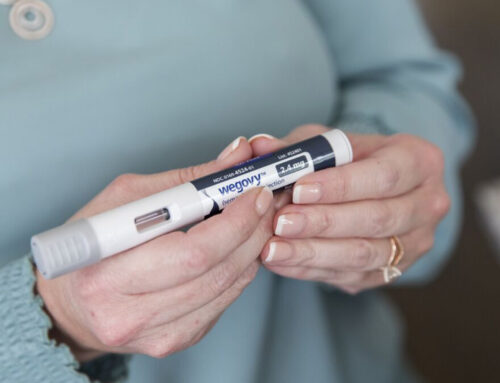At the recent Emmy Awards, while big winners expressed gratitude to agents, managers, and audiences, there was an unacknowledged benefactor prominent among many stars – the injectable drug semaglutide, known as Ozempic.
Manufactured by the Danish pharmaceutical giant Novo Nordisk, Ozempic serves as an insulin regulator for pre-diabetic individuals, with its primary side effect being substantial weight loss. Over the past few months, it has become widespread in the industry, aiding individuals in shedding extra pounds – a common pursuit in Los Angeles where appearances are continually optimized.
According to Hollywood nutritionist Matt Mahowald, the injections offer benefits such as moderating insulin secretion, slowing down stomach emptying, and promoting satiation from food. Industry insiders, including moguls, reality stars, film producers, and actors, have been discreetly praising the drug on Signal, an encrypted messaging app known for confidential conversations. Teams responsible for the grooming of celebrities, including hair, makeup, and styling, have incorporated Ozempic injections into their rituals before major events.
Despite being originally designed for pre-diabetics, the drug is reportedly supplied by doctors and nutritionists to non-diabetic enthusiasts. However, this comes at a significant cost, ranging from $1,200 to $1,500 per month. The enthusiastic response from the industry has led to challenges with major insurance companies, which are refusing coverage for non-diabetic users. Pharmacies are facing backorders until December due to the overwhelming demand.
Moreover, reports suggest that the high demand has resulted in a reduced supply, leaving those who genuinely need the injections struggling to access them. Another version of semaglutide, Wegovy, specifically targeting obesity, is also seemingly scarcely available.
Ozempic gained international attention three months ago after becoming viral on TikTok under the trend #MyOzempicJourney, showcasing remarkable transformations. Media outlets such as Town and Country and Glamour magazine have recently highlighted its prominence in social circles.
Dr. Zhaoping Li, chief of clinical nutrition at the David Geffen School of Medicine at UCLA, cautioned that while the drug is a tool for weight management, many questions remain unanswered. The longest study on these injections spanned less than two years. Dr. Li emphasized that the maximum weight loss observed in most patients is 15% of body mass, underscoring the importance of lifestyle factors such as activity, proper eating, and stress management.
Similar to other miracle weight loss drugs, there is skepticism about its long-term use. Besides achieving a leaner figure, a notable side effect includes gastrointestinal phenomena like bloating, constipation, and diarrhea, as reported by Town and Country. When questioned about this unpleasant risk, one talent publicist bluntly stated, “Who cares? Everyone who works in this business has IBS, anyway.”
Credited Source: VARIETY





